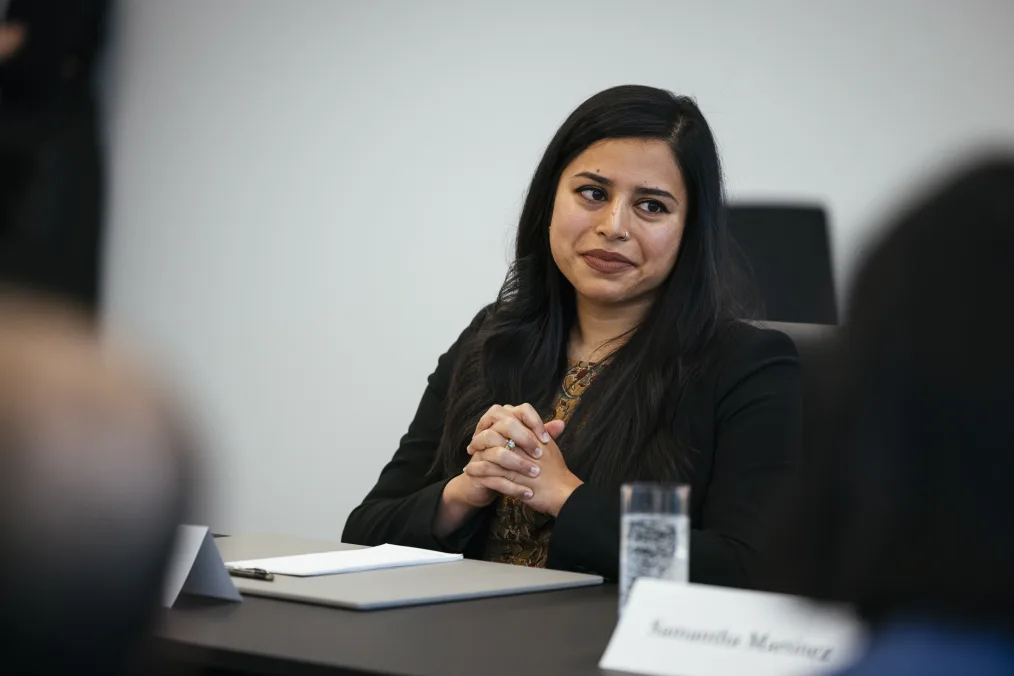Redesigning mental health support in schools across America
University of Chicago Obama Scholar Prachi Naik is helping students receive groundbreaking mental health support at their schools through an innovative nonprofit that is putting mental health professionals directly on campuses. As students and educators prepare to return to school soon, we spoke with Prachi about her inspiring journey from educator to Director of Counselors for America.
As a former middle school teacher, Obama Scholar Prachi Naik has seen first-hand the mental health issues students face—and how these issues can negatively affect their education. Too frequently, teachers shoulder the pressure of serving on the front lines of this critical problem, but with a lack of professional mental health training and available resources. It can also, like in Naik’s case, lead to burnout for teachers.
“The more I got to know my students, the more I found that the behavioral issues were really just the tip of the iceberg,” Naik explained.
Teaching in an underserved community in the Bay Area, she saw that “so many students were going through the insecurities of surviving poverty, housing insecurity, food insecurity, immigration insecurity, and they carried all of these really challenging stories with them.”
“Even though I worked really hard and my students performed really well on standardized tests, the one thing that still kept me up at night as a teacher was being completely unequipped to handle the traumas they were bringing into the classroom with them,” Naik shared.
As an educator who had studied trauma-informed and culturally responsive pedagogy, Naik envisioned her classroom being a space where students could feel seen and heard when she first started. She chose specific books to derive lessons from, decorated her classroom thoughtfully with representation on the walls, and she made decisions all geared towards validating her student’s experiences—but in the end, that wasn’t enough.
“With the stories that were emerging, I often felt like I didn’t have the words to respond in a way that didn’t re-traumatize my students,” Naik explained. “And that’s where I really felt like there is so much space between me as an educator who cares so much about students and somebody who is professionally trained to handle these stories.” She went on, “And I think social emotional learning and trauma informed pedagogy are both crucial, but so many schools just rely on those methodologies alone.”
Determined to fix this imbalance, Naik founded Counselors for America (Opens in a new tab). This innovative approach to rethinking mental health services in the classroom has been a journey that has also led Naik to study Business Administration and Public Policy at The University of Chicago, and expand her perspectives as part of our latest Obama Scholars cohort.
“In the traditional school model, you have clinicians operating out of social service agencies that cover a lot of schools at a lot of different times,” Naik explained. “At Counselors for America, we’re taking the clinician and putting them fully in the school so that they’re integrated and at a really increased ratio than currently exists.”
Counselors for America’s ultimate goal is to have a dedicated clinician for every grade. To provide context to that ambitious goal, Naik explained, the average ratio for students to every one clinically trained social worker is 6,000 in California.
“When students get access to mental health services, you see tremendous improvement in their prosocial behavior and a reduction of any anxiety and depression,” Naik said.
Recently, Naik and Counselors for America just wrapped their first pilot program and have more data than ever to keep fine tuning how to execute their ambitious plan. The location of the first trial took place at the school Naik was inspired to launch her nonprofit organization, giving her a full circle moment.
Naik credited the Obama Scholars program for having an impact not only on her work, but her confidence as a young leader.
“The Scholars program helped me feel like I was deserving of that kind of investment when I didn’t always feel it in myself,” Naik shared. “I know it sounds cliche, but having that kind of support and belief is really soul sustaining.”


